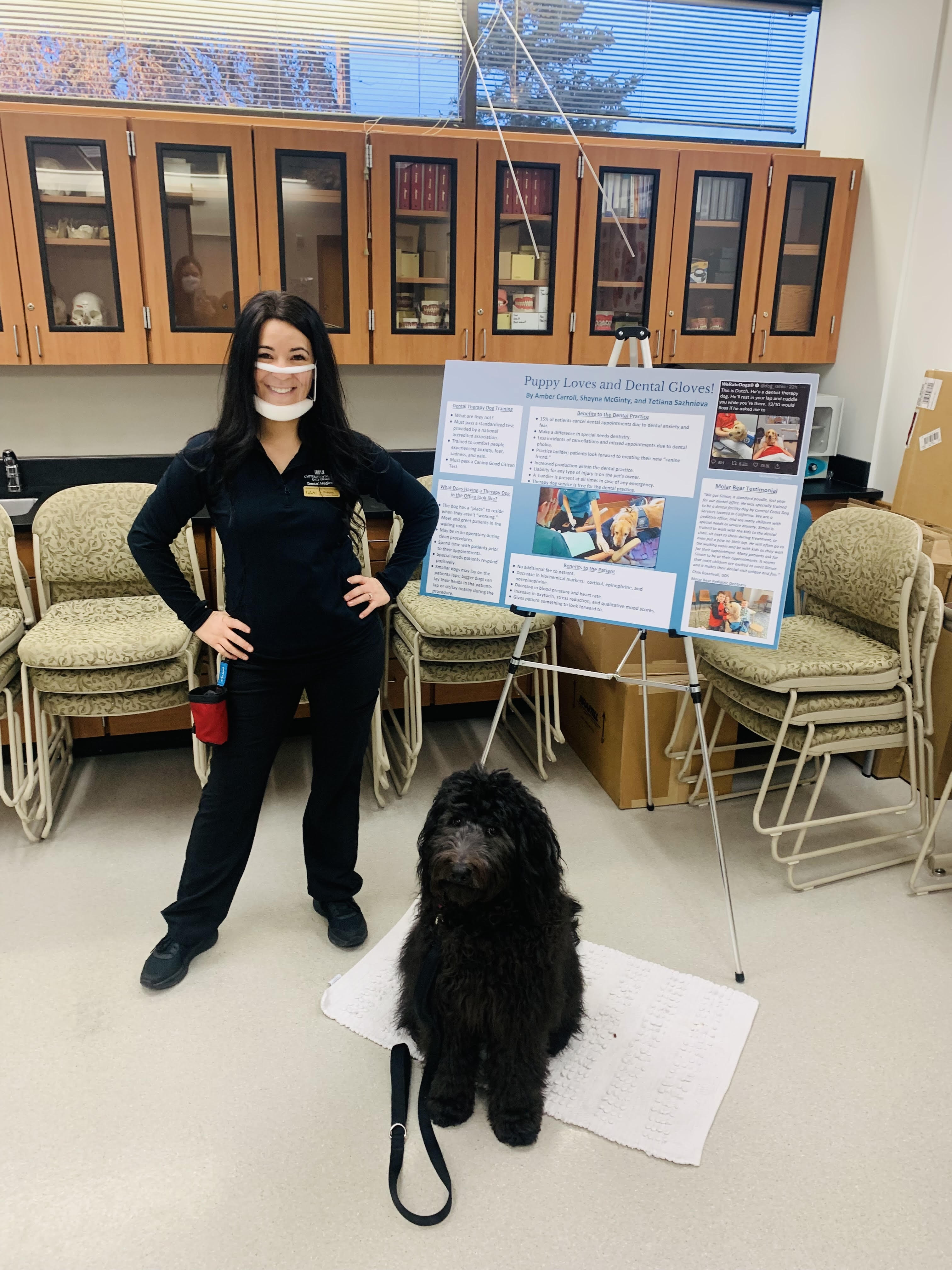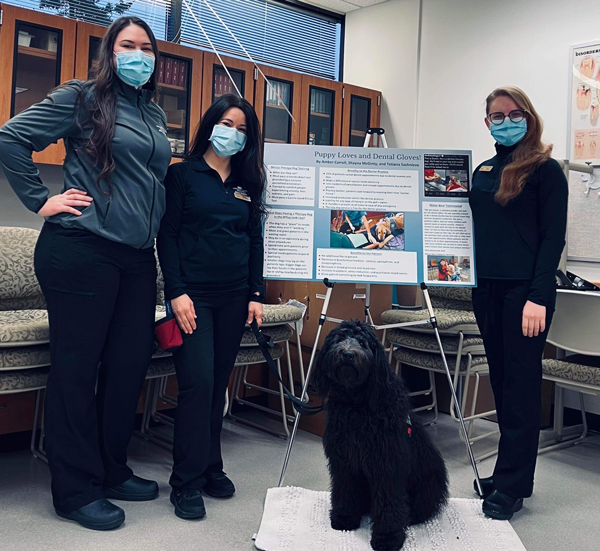Did you know that students at University of Alaska Anchorage are studying how therapy dogs in dental offices can help reduce patient stress?

Meet Luci the therapy puppy, who helped UAA dental hygiene students Shayna McGinty, Amber Carroll and Tetiana Sazhnieva with their research – studying the positive effects of having therapy dogs work in the dental industry.
McGinty says it started when her family adopted two new puppies, noticed their gentle and calming temperaments and wondered if a well-tempered dog might be useful in dental offices much like those that are frequent visitors in hospitals.
“I’ve noticed in my experience working in the dental field that many people struggle with dental anxiety and I wondered if dental therapy dogs were even a thing,” McGinty said. “I reached out to a local training facility and they confirmed that dental therapy dogs are, in fact, a thing.”
McGinty began researching the topic to determine if there were measurable benefits to having a therapy dog in a dental office and decided to start training one of her puppies, Luci, as a dental therapy dog with Alaska Dog Works. After conducting an initial literature review last semester, McGinty found there were positive effects of having a dental therapy dog.

McGinty’s team decided to share the findings with their dental hygiene classmates and community. During the presentation, the team discussed the benefits of dental therapy dogs, the type of specialized training the dogs receive and how it might look to have one in a dental office.
During the presentation, However, one team member – Luci – stole the show.
“When our group decided to present this topic as a research presentation, I asked if it would be okay to bring Luci,” McGinty said. “We got permission, and she was a star!”
“One of the things I found interesting is how petting a dog can lower our cortisol (hormone for stress) and epinephrine and norepinephrine (fight or flight hormones) while also increasing our oxytocin (warm, fuzzy feeling). Also, having a dog around can make a dental visit unique and special — an added benefit to the dental office and providers,” she said.
